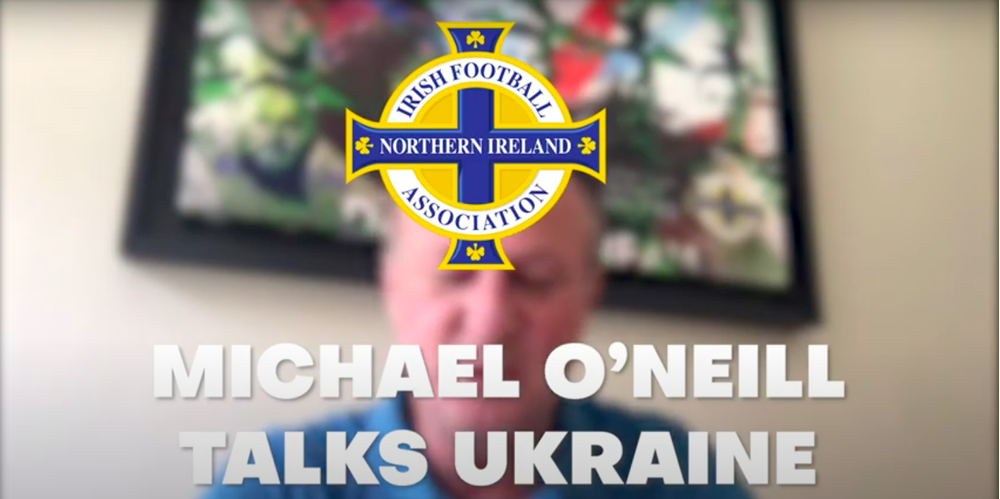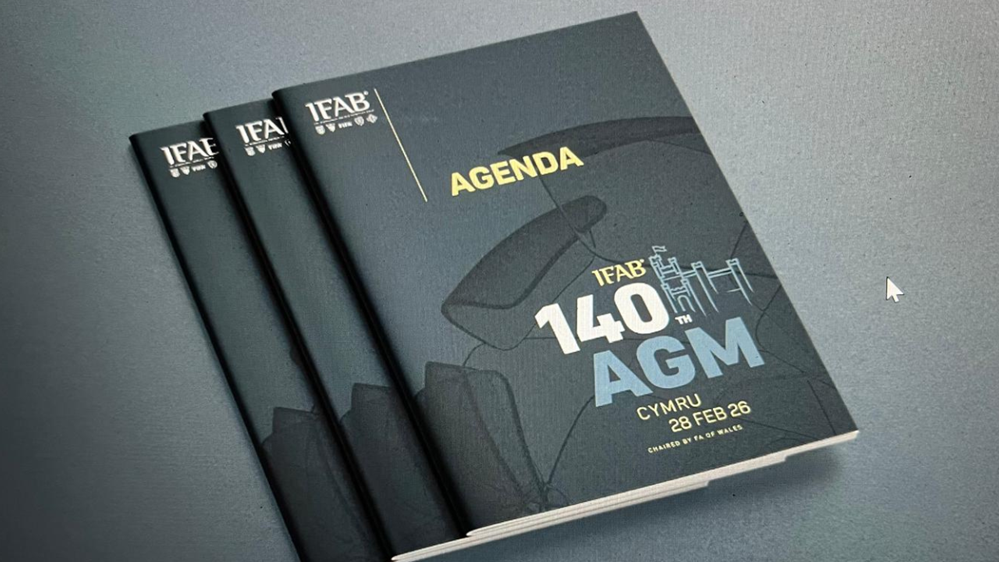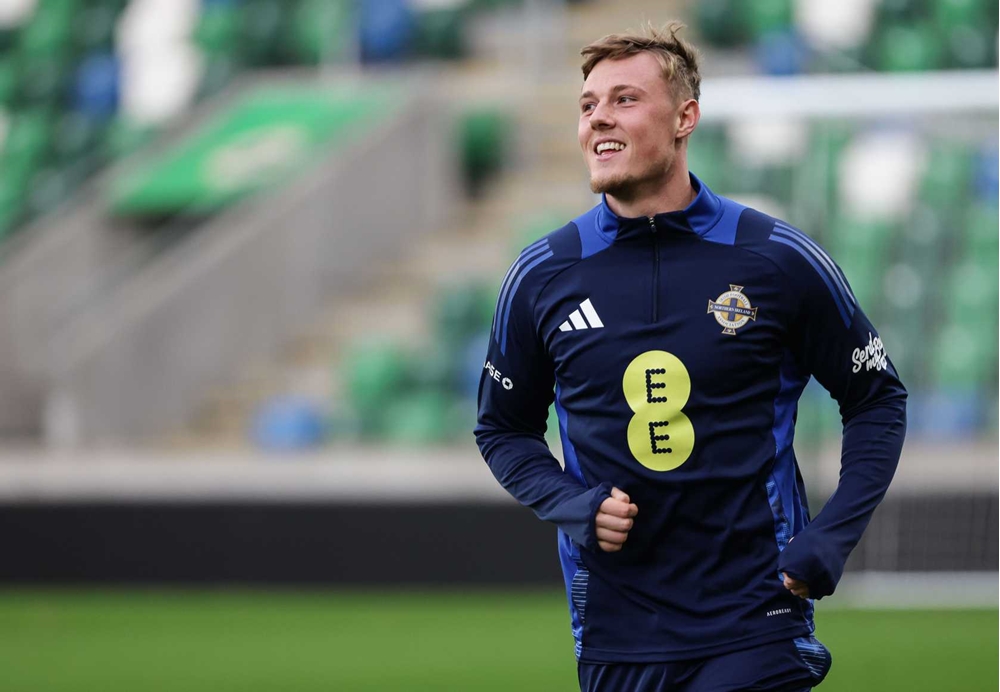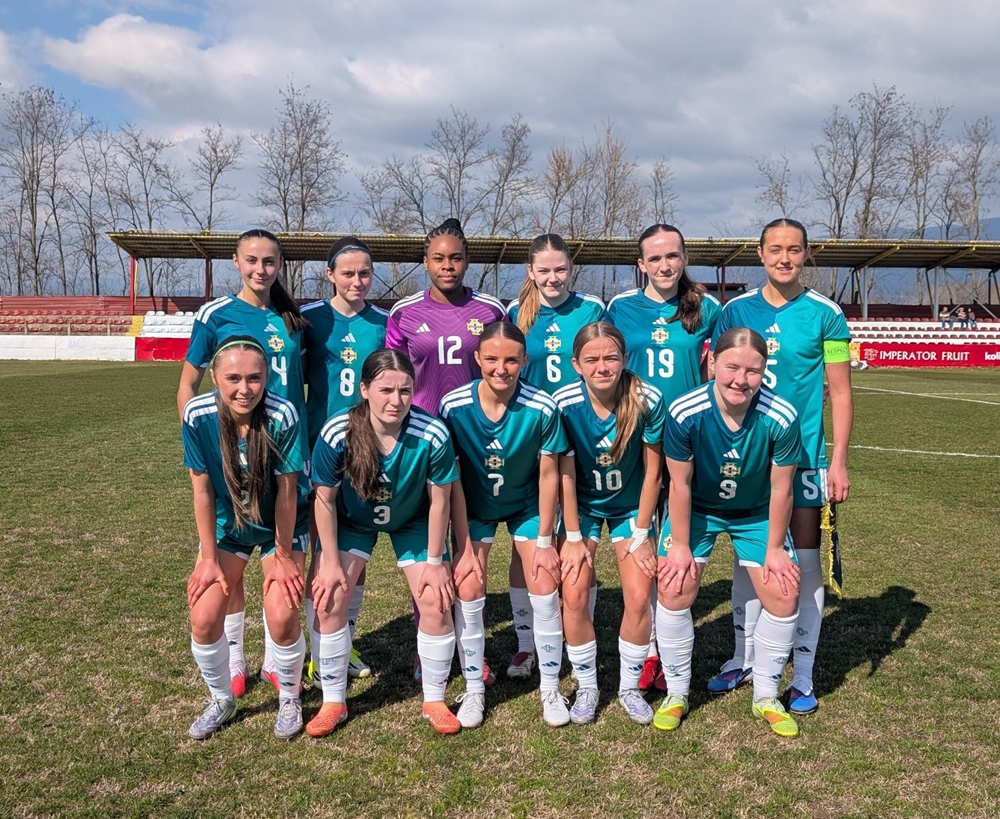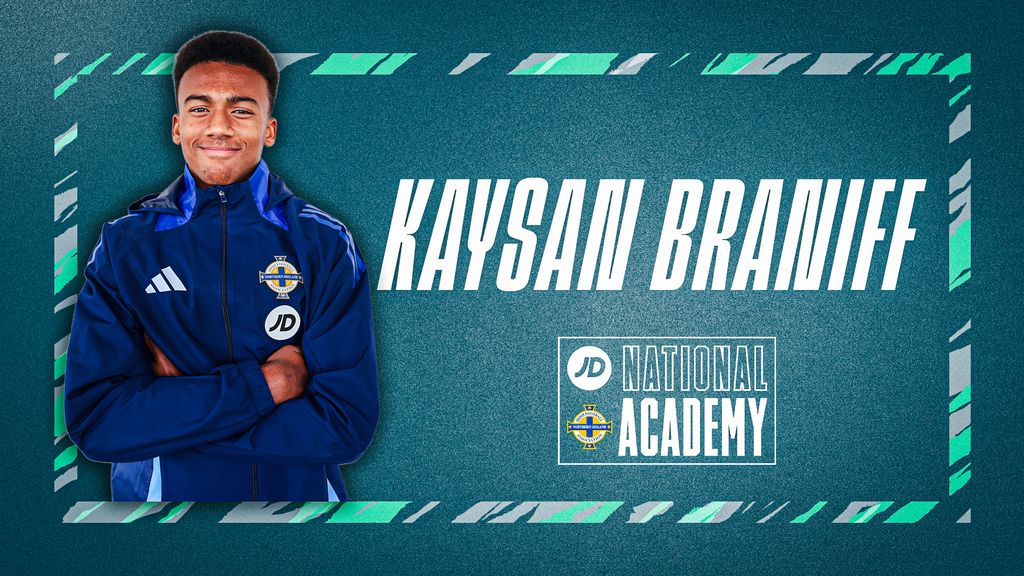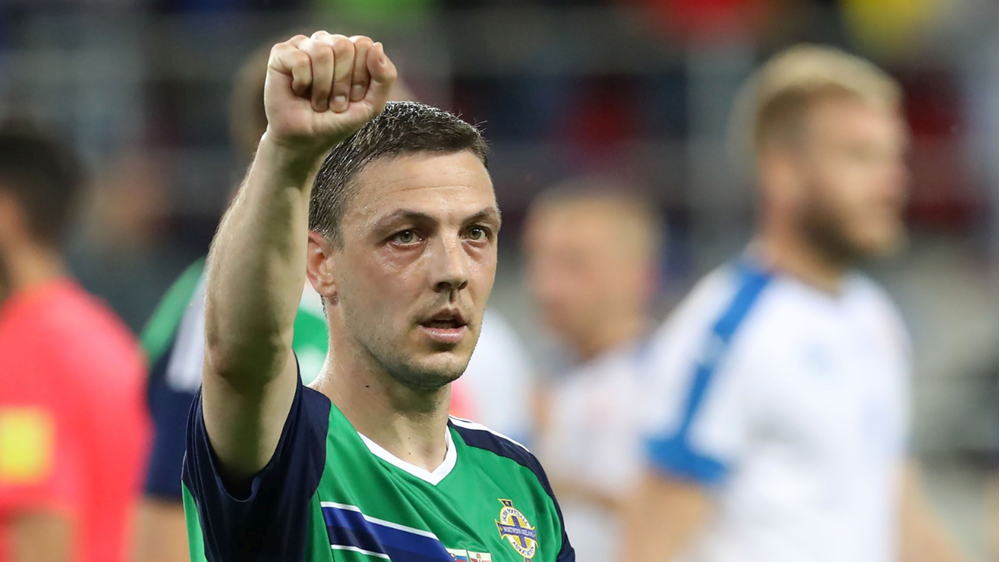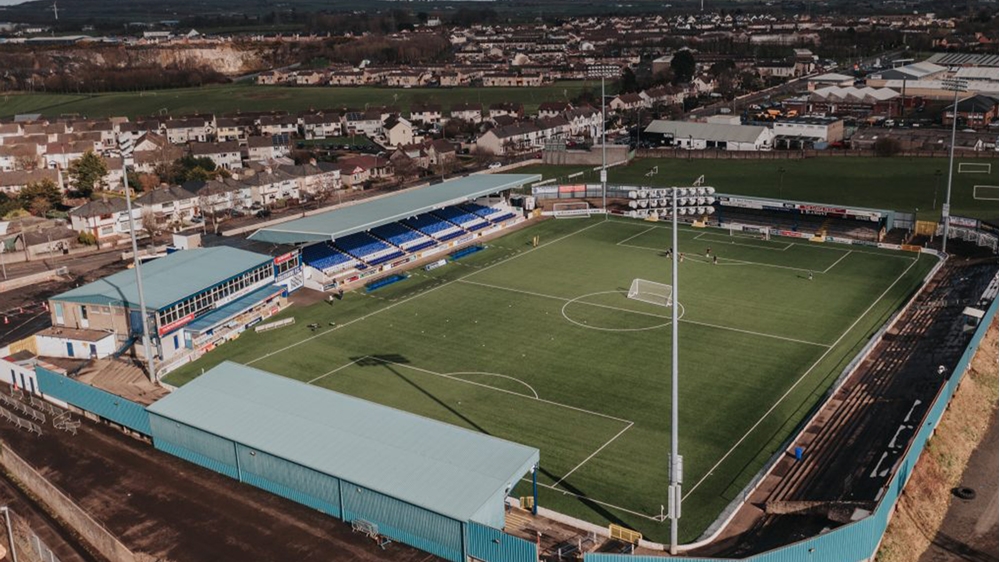It was four years ago today when the Green and White Army celebrated a memorable victory in Lyon versus Ukraine in the group stages of the UEFA 2016 European Championships. Like the rest of us, UEFA is taking the opportunity to look back on a memorable tournament and found time to catch up with former Northern Ireland manager Michael O’Neill. He reflects on the magic of that period here:
We’re here to have a chat about your time with Northern Ireland, of course, at that EURO. You started off with Poland, there had been such a tremendous anticipation for this tournament. What do you remember about those opening stages?
A-. We were obviously delighted to be there. And, you know, our first time in 30 years - there was a lot of, I think, tension in the group, nervousness I think as well. You could sense that in the build-up to the first game.
And, you know, we had a couple of things to consider; it was very hot on the day as well, we were obviously playing in Nice, which probably didn’t suit us in all honesty. I think for us, we knew that in that game in particular, we had a game plan really, which all centred around Robert Lewandowski, you know, and first of all stopping him from having any impact in the game and primarily trying to stop him from scoring, which we did. That part of the game plan was executed very well. But on the day, we didn’t play as well as what we could’ve done. I felt Poland settled into the game better than we did. They had more players probably who had experience of playing the game at a higher level in terms of European club football and international football. There were a number of players that had played in the tournament in their host country in 2012 as well, so, you know, as I say, we were a little bit unnerved, I think, by the whole occasion in the first game.
And the goal, arguably, you could’ve done better to prevent it - Michael McGovern going the right way, Craig Cathcart and Gareth McAuley going in to try and stop it.
A- Yeah, it was, and, you know, as I say, we’d done so well in nullifying Lewandowski, but it created a little bit of space for Arkadiusz Milik, and it was a decent shot but it wasn’t - when we look back at the goal - as if we were caught, we had a lot of men behind the ball, we weren’t caught short in terms of a counter-attack. And, again, it was a goal, when you look at it from that perspective, that was very preventable. I think Michael was a bit unsighted and saw it a little bit late, and it just crept into the bottom corner. It knocked us back a little bit. But, you know, credit to the lads. They stayed in the game and tried to find a way back, but ultimately, the goal itself obviously proved to be the deciding goal in the game.
Moving on to Ukraine, obviously changes were necessary to get the win. How did yourselves and the team approach that game?
A- Well, it was interesting. You reflect very quickly, and I remember watching the game back with my coaching staff on the plane coming back from Nice to our base in Lyon, and we were concerned that we lacked intensity in the game, I felt. We lacked the ability to press higher up the pitch than we would have liked. So, it was interesting because UEFA, after each game, produced a magnificent report - a statistics report, both physical and technical - and we took a lot out of that report, to be honest. We took a lot of that data and reflected on that with the players when we watched the game back. There were just situations in the game where Poland just, at times, looked to be running past us, they just looked to have more power, more running power, greater intensity in their play, particularly in the first half, and I felt that we needed that in our game. We would have to go into our second game and we would have to alter that. As a result, obviously, we made quite a number of changes to the team that played in the second game against Ukraine.
Five changes within that team from the previous starting XI, with Kyle Lafferty on the bench as well. When you think back to the early chances that Northern Ireland created, did you think: “Yes! This is going to be our afternoon”?
A- Yeah. What I did feel in that game was, right from the word go - I think Ukraine had [the] kick-off and we pressed the ball incredibly well. Conor Washington was brilliant for us that day, in terms of what he gave us as a lone striker. It allowed Steven Davis to press more, it allowed Corry Evans, Oliver Norwood, our midfield, Stuart Dallas to do the same, and we had so much more running power in our team in that game, if anything, it rattled Ukraine. I think they possibly would have preferred a slower game and a game where they were more in control. We wanted the game to be less like that. We wanted it to be more of a British-style game and we always talked about that, but to do that we had to have that running power in our game. We did have chances, quite a number of chances, not necessarily clear-cut chances, but good chances, in terms of opportunities to potentially score. But I felt, in the game, that the performance level was so much higher and my only real concern was whether we would be able to maintain that, But that wasn’t the case and the second half was certainly on a par, if not better than how we played in the first half.
Of course. You went into the tournament with a reputation of being incredibly strong from set pieces, exploited perfectly, really. What do you remember about Gareth McAuley's goal?
A- Well, we had quite a number of different set pieces that we’d worked on and it was one of the best things about the tournament. We had so much preparation time in the build-up that we would never normally have. So, I think that helps enormously in the development of your team and it gave us so much more time to work on things like set pieces in particular.For different areas of the pitch, we had different routines that we’d worked on. They were based a little bit on the opposition as well. We always tried to get Gareth McAuley to come as late as possible, just because we felt that teams couldn’t necessarily pick him up. A lot of teams tried to nearly put two players on Gareth, and we felt if he came as late as possible, it would make it slightly more difficult for them.We tried to create a little bit of distraction in other areas and then it was a case of just the quality of the ball that was delivered. Oliver Norwood played a magnificent ball, it travels a long, long way, but it’s a fabulous header from Gareth. It was magnificent, and it’s a textbook header where he heads it back across the goalkeeper. Obviously, it was a brilliant moment that we still reflect on to this day.
What do you remember about the later stages of that game? Obviously, we had that hailstorm which halted play and then Josh Magennis - There was that great sequence just before Niall McGinn’s goal where everybody was telling him: “Just get it out! Get it out into the corner, put it to safety!”
A- Josh Magennis had a real impact for us, coming off the bench. He had a lot of things that were very valuable to us, but, probably in that moment, he did the one thing that we least expected him to do, really.
He had a great little piece of skill out in the wide area and it’s a great cutback to Stuart Dallas, and a really good finish from Stuart. The goalkeeper makes a very good save down to his left and Niall’s on hand to score the second goal.
It was brilliant because the hailstorm came at a time in the game when we had momentum and I was worried that maybe it would disrupt us. Thankfully, we were only off the pitch for a couple of minutes. We were all just standing in the tunnel. We got back to playing quickly. So, thankfully, that didn’t have too much disruption, but the second goal was a brilliant moment for us.
Both goals happened at the end of the stadium where there was a huge bank of Northern Ireland fans, so the atmosphere was incredible. The great thing about winning that game and the second goal was, at that point in time, we felt we were in the tournament. We knew at that point we were in the tournament, we had a chance to progress as well, and those were all things that, I suppose, coming into the tournament, people had talked about how it was a great team and great for us to be there, but, once there, we weren’t expected to have much of an impact getting there. So, to win our second game and then set up the chance to play the world champions in Paris, with a chance to qualify for the second phase of the tournament, was stuff you dream about.
That was when you were putting the marker down and saying ‘Not only did we qualify and star, but we thoroughly deserve to be here, in with a snatch of the Round of 16.’ You stuck with the same XI for the Germany gameand Michael McGovern was just outstanding. It was sad to get the defeat, but it was narrow.
A- The Germany game was very challenging, because we were on three points, you know that the structure of the tournament meant that, if you got four points, you were pretty much guaranteed to qualify, and with three points you had a chance of qualifying,but what would put you out at that stage would probably be goal difference. When you’re in that situation, the last team you want to be playing is Germany. I felt Germany were the best team in the tournament, to be honest. In the first 20 to 25 minutes of the game, it was an onslaught, to be fair, and they were so good, their movement so good, the quality of their play was so good and Michael McGovern made easily five or six fantastic saves, and made some saves in the second half. Look, but for Michael’s performance, we could have been beaten, and well-beaten, to be honest. As it was, as the game stood at 1-0,
Whilst we defended better, Germany didn't have as many chances in the second half, but we had to try and find a way to get back into the game as well, and it's very difficult because, as a coach, you’re sitting there thinking ‘Well, 1-0 might be enough, this might be enough to take us through, but equally if we could get a goal, a draw.’ So, you’re trying to be more offensive, but all the time you're opening the door a little bit more for Germany and, suddenly, they can score two or three goals in a short space of time and you're out of the tournament, ultimately, because of the goals you concede. So, that's probably the most difficult game I've ever had to manage in my career from that perspective,
In terms of tactically thinking about the changes that we made. We ended up the game essentially 4-4-2 having started the game for 4-5-1, and we were doing that with the anticipation of - could we get the opportunity, possibly off a set piece,that we had as much attacking threat as possible on the pitch at that point in time. So, it was really challenging but when we came off the pitch, we felt we had a good chance, that we'd done enough. It did feel a little bit like a draw although we lost the game 1-0,and I remember we were on the bus from the airport terminal to the plane, to head back to Lyon, and the scores were filtering through from the other games and we knew at that point that we had qualified.
Thomas Müller was a player who I think was, on balance, pretty unlucky in that game to have diving headers against the post, and his contribution finally came in setting up Mario Gómez. What do you remember about the goal?
A- Yeah. I remember the chances that they had. They probably had better chances than the one they scored actually, to be honest. You know, Michael McGovern had - We got brilliant blocks, you know, Gareth McCauley, and [Jonny] Evans, and Craig] Cathcart, Aaron Hughes, we defended for our lives at times.Michael was so brave. It's one of things about Michael McGovern; he's probably the bravest goalkeeper that I've ever had the pleasure to either play with or work with. Most goalkeepers, when they come out in one-on-one situations, whilst they make themselves big, they often turn away.Michael doesn't. He’d take the ball full in the face if he had to, if it meant keeping them out. He makes an unbelievable save from Mario Götze early, before the goal, down to his right-hand side. It's an incredible save.When a team like Germany are knocking on the door as consistently as that and as strong as that in the game, eventually something gives, and the goal was a little bit scrappy in the end, but, ultimately, we can't say that they obviously didn't deserve to score at that point in time, but it was frustrating because we were trying to get a foothold in the game, trying to get a little bit of possession, trying to get a little bit of territory in the game where we could get out of our own half, to be honest, because Germany’s style of play is such that they almost suffocate you, and they suffocate you with the ball,until eventually you’re worn down and gaps start to appear, and people just, through fatigue or [lack of] concentration, make mistakes. But, as I say, the pleasing thing for us is that our reaction to conceding that goal was that we didn't buckle and we stayed in the game.
and you stayed in the tournament really in that respect given the narrow, just a narrow defeat to Germany, which brought Wales as you’re next opponents. What did it mean to be playing, I guess, another home nation for yourself and your fans?
A- I think when you’re a small country like us in the tournament, you have different… Your first expectation is to go and enjoy the tournament and not be embarrassed. You don’t want to go there and be embarrassed, you know, and we certainly didn’t do that. The second was that we always wanted to maybe go out in the scenario in a blaze of glory, and we had pretty much, mentally, since qualifying for the second phase, we felt we were going to be playing France in Lyon. So, we were looking forward to that because we were based in Lyon, we didn’t have to change hotel, and we’d had the great experience of beating Ukraine in Lyon, so we were quite geared for that situation, and it was only the last five minutes of the Republic of Ireland against Italy [game] that changed that,when the Republic of Ireland scored, and then suddenly it all altered and Ireland were playing France in Lyon, and we were playing Wales in Paris. But the fact that we’d played in Paris was a good thing; we’d had the experience of being at the stadium, and it was a magnificent stadium to play in.
We’d played Wales in a friendly game leading into the tournament in Cardiff, a game that we drew one each. We actually felt we led that game right up until the last minute, and both teams weren’t at full strength in that. They didn’t have Gareth Bale in that game, for example. I’m not sure if Aaron Ramsey played or not, he may not have done. So, we knew that Wales were… It was a different proposition than the team we’d faced pre-tournament. But also, what we said to the players, like what I said to the players was well, if we’d offered you the chance to play Wales to get to the quarter-final, before the tournament, you would have taken it with both hands, and that was how we approached it. You know, we knew that if we could stop Bale, stop Ramsey, then we’d have a chance. And the nature of the game was that it was a very British type of game, not really technical, both teams maybe a little bit careless in terms of possession. So, it was a great opportunity for us, and that’s how we felt about it before the game.
There were chances created... Stuart Dallas, Jamie Ward. Did you think: “We might be able to see this through even if it means winning ugly?”
A- Yeah, 100% we felt like that. We… I remember at half-time speaking to the players, and there was more expectation on Wales I think, and it was probably more difficult… I think having spoken to Chris Coleman since the tournament, I think it was possibly for them their most difficult game in terms of mentally preparing for it. It would have been a big disappointment for them to go out to Northern Ireland, given some of the players that they had. We were in a scenario where we had everything to gain still, and we felt that we were capable of doing that. We felt that we had the ability to go to the last eight. Chances were few and far between in the game and our game plan pretty much worked to perfection, other than that one moment.You know, Gareth Bale had had a huge impact on the tournament, and in that game we kept him quiet, we kept Aaron Ramsey quiet, and we felt at that point, you know, we could… We were very strong at nullifying teams, our problem was how we could win from that position,because we didn’t go into the tournament with any attacking players in particularly great form. You know, none of our attacking players were coming off really strong seasons at their clubs. So, that was always an issue for us, how we would find that goal, how we would find that opportunity to win the game, and probably the Welsh game was the difference.You know, they probably had that little bit more individual quality, and Bale obviously is a world-class player that can make the difference in a game. We didn’t have that, unfortunately, and ultimately that proved to be the difference, but we were more than prepared to win ugly, I assure you, yeah! At that point, we would have gone to extra-time and penalties, and we had actually, the night before in the stadium, we did practice penalties in the stadium. We practiced it with the players walking from the halfway line, going through everything they would do, trying to recreate it, because we felt that, as long as we stayed in the game, then it may be a situation that arises down the line.
The own-goal, of course, was just heartbreaking. What do you remember about seeing it from the technical area? How did you feel for Gareth McAuley and at full-time, as well?
A- Yeah, it’s a terrible way to go out and a terrible way for Gareth McAuley, because it’s a great ball in from Gareth Bale. I think Ramsey slips a nice little pass wide. We over-covered on the inside and it meant that Bale got a little bit more space than he’d had at any point in the game,and he just plays it - because he’s on his left foot as well, he’s in a great area to just play it into that space between the goalkeeper and back four. At that point, as a centre-back, you have a decision to make; you either leave it and hope that the opposition aren’t there, or you have to try and defend it. Gareth McAuley made the decision to try and defend it. When you look at it, Hal Robson-Kanu is just behind him and you probably think he would score if Gareth McAuley had left it. When it happens, I always think if he leaves it, Robson-Kanu could have missed as well, but, at that moment, you don’t have that time, you certainly don’t have the benefit of hindsight.So, it was terrible. At the time of the game that it came, as well, there was still - it was maybe around 73, 74 minutes or something like that. There was a period in the game where the game had sort of… There was a real stalemate and it didn’t look like either team really knew, you know, how to win.We felt that Wales - you could see there was a real tension in their play, which is what we wanted to create. We were quite comfortable, at times, in the games not having the ball. We knew that we had played like that, so it wasn’t a concern for us, you know, to be in periods of the game without the ball.
It seemed to be a bigger factor for the Welsh lads, and they struggled with it a wee bit more maybe, mentally, than we did. So, when the goal came, we had to try and react from there, and it was quite difficult for us to do that.We also had a situation where Gareth McAuley had an injury, he was limping quite badly. We had a decision to make. It was our last sub and the decision we had to make was really: if we score and go to extra-time, we can’t play half an hour with ten men essentially,but, equally, if we take him off, we ultimately take away one of our biggest goal threats in terms of set pieces. So, we were caught in that dilemma with only one sub left, but, ultimately, he couldn’t carry on, so we had to take him off,change the system, you know, go to a 4-4-2, and try and capitalise and get something, but Wales held firm.As I say, they went through and they proved their worth by going to the semi-final.
Of course, throughout the whole tournament, fans couldn’t keep quiet. Will that kind of exuberance stay with you? Is that one of your lasting memories from [UEFA] EURO 2016?
A- Yeah, I think it was a fantastic experience and it was a fantastic tournament; brilliantly organised, the atmosphere in all the stadiums was phenomenal, and our supporters were magnificent.The greatest thing, I think, as a coach, that I took from it, was not only to be part of the team and to take that pride, but after 30 years, there was a whole generation of Northern Ireland fans who had never been to a major tournament.You know, if you go back to 1986, the [FIFA] World Cup of ‘86, probably anyone under the age of 40 can barely remember that. So, for those people, it was a magnificent experience, and so many supporters, afterwards and over the years, have come up, thanking me for giving them the best summer they’ve ever had in their lives, and that’s a really nice thing to hear because you take a real pride [in it]. For years, Northern Ireland fans have travelled the globe, supporting their team. Sometimes it’s not been great. There’s been disappointing results and they’ve had to deal with disappointments.
So, to get the chance to go to a major championship… What they brought to the tournament, as well, you know, was phenomenal, and that image of the ball going into the net, particularly in Lyon, in front of the end with all the Northern Ireland fans, will live with me forever, so it will.
